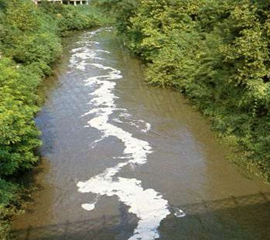The UN Rio Conventions - The linkages between biodiversity, climate change and sustainable land management
It is now widely recognized that climate change, land degradation and biodiversity are interconnected, not only through effects of climate change on biodiversity and land management, but also through changes in biodiversity and ecosystem functioning that affect climate change. The carbon cycle and the water cycle, arguably the two most important large-scale processes for life on Earth, both depend on biodiversity – at genetic, species, and ecosystem levels and can yield feedbacks to climate change.
Maintaining and restoring healthy ecosystems plays a key role in adapting to and mitigating climate change through biodiversity conservation, sustainable use and sustainable land management and yields multiple environmental, economic and social benefits.
Ecosystem-based approaches provide an important route to sustainable action and represent a vital insurance policy against irreversible damage from climate change, whereas failure to acknowledge the relationship between climate change and biodiversity and failure to act swiftly and in an integrated manner could undermine efforts for improvements in both areas.
However, enormous pressures have been put on ecosystems to support the ever-growing demand for natural resources over recent years. Ecosystem services that are central to adaptation include goods, such as food, fodder and pharmaceutical products, and services, such as nutrient cycling and hydrological flows. (...)
The article:
http://agrobiodiversityplatform.org/climatechange/2010/12/09/the-linkages-between-biodiversity-climate-change-and-sustainable-land-management/
The Rio Conventions' Ecosystems Pavilion:
http://www.ecosystemspavilion.org/en/home
* * *
Past...present:
* * *
Sull'argomento:
http://www.greenreport.it/_new/index.php?page=default&id=9009
* * *
The UN Conference Rio+20 website:
http://www.uncsd2012.org/rio20/
* * *
Report on the 2nd Meeting of Preparatory Committee for the United Nations Conference on Sustainable Development (“Rio 2012”):
http://www.iisd.ca/uncsd/prepcom2/
http://www.un.org/News/Press/docs/2011/envdev1201.doc.htm
A Side Event at 2nd Meeting of the UNCSD Preparatory Committee Science In Support of Rio 2012:
http://www.ony.unu.edu/events-forums/new/MDForums/2011/united-nations-university-inte.php
Sull'argomento:
http://www.asud.net/it/news/7-mondo/1509-il-pericoloso-cammino-verso-rio20-.html





 Disposti a mangiare bistecche e polpette solo due volte a settimana, anziché quattro? A metter su la lavatrice solo se il sole splende o tira vento (pena sovrapprezzo)?
Disposti a mangiare bistecche e polpette solo due volte a settimana, anziché quattro? A metter su la lavatrice solo se il sole splende o tira vento (pena sovrapprezzo)?  Lambro, Sarno, Sacco, fiumi che scorrono in diverse regioni italiane, che hanno in comune il fatto di essere tra i più inquinati del Paese.
Lambro, Sarno, Sacco, fiumi che scorrono in diverse regioni italiane, che hanno in comune il fatto di essere tra i più inquinati del Paese. "Entro l’anno appena iniziato le Autorità d’Ambito Ottimale (ATO) saranno soppresse e alle Regioni sarà affidato il compito di individuare i soggetti cui devolvere le funzioni di gestione delle risorse idriche.
"Entro l’anno appena iniziato le Autorità d’Ambito Ottimale (ATO) saranno soppresse e alle Regioni sarà affidato il compito di individuare i soggetti cui devolvere le funzioni di gestione delle risorse idriche. 

